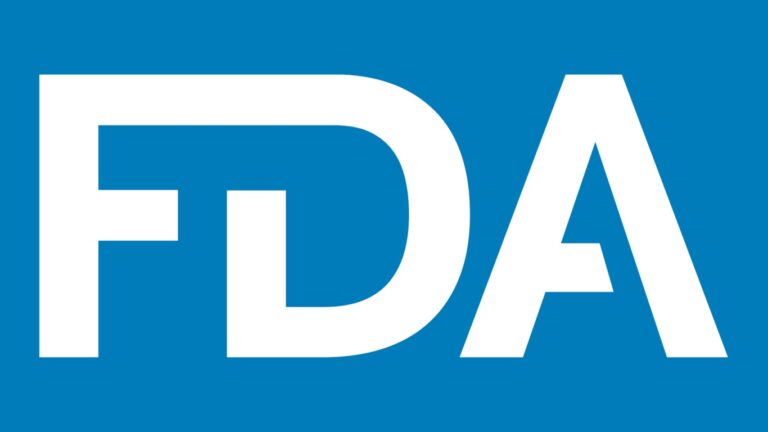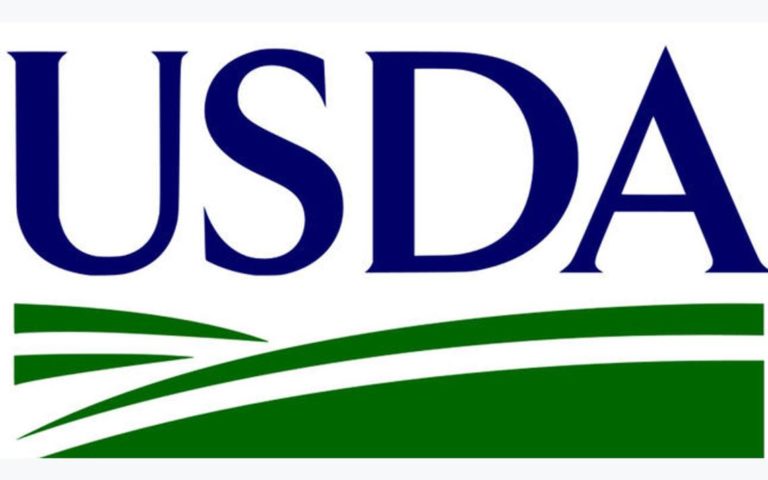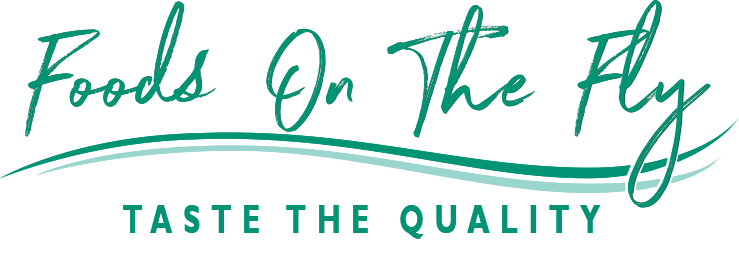- 7004 Carroll Canyon Rd, San Diego, CA 92121
- (858)404-0642
Close

Discover the assurance of quality and safety in every bite! Foods On The Fly is proud to announce our FDA certification for food production. Savor the excellence of our meticulously crafted products, where every ingredient meets the highest standards set by the Food and Drug Administration. Choose Foods On The Fly for a culinary experience that blends flavor with trust.
Comprehensive Food Safety Management System: SQF certification requires the establishment and implementation of a comprehensive Food Safety Management System (FSMS). This system encompasses a range of activities and protocols to ensure the safety and quality of food products.
Hazard Analysis and Critical Control Points (HACCP): SQF certification often involves the integration of HACCP principles. This systematic approach identifies, evaluates, and controls potential hazards throughout the food production process.
Adherence to Global Standards: SQF is recognized by the Global Food Safety Initiative (GFSI), signifying that certified companies meet or exceed international food safety standards. This recognition enhances the acceptability of products in global markets.
Risk-Based Approach: SQF emphasizes a risk-based approach to food safety, requiring companies to identify and address potential risks at various stages of production. This approach allows for effective risk mitigation and management.
Documented Procedures and Protocols: SQF certification entails the development and documentation of specific procedures and protocols related to food safety, quality control, and regulatory compliance. These documents serve as evidence of the company’s commitment to maintaining high standards.
Regular Audits and Assessments: To maintain SQF certification, companies undergo regular audits and assessments conducted by SQF-certified auditors. These assessments ensure ongoing compliance with established standards and continuous improvement in food safety practices.
Supply Chain Assurance: SQF certification often involves a focus on the entire supply chain. This includes ensuring that suppliers and partners also adhere to SQF standards, promoting a comprehensive approach to food safety and quality.
Consumer Confidence: The SQF certification logo on product packaging instills confidence in consumers, assuring them that the product has been produced under stringent food safety and quality guidelines.
In summary, SQF certification signifies a commitment to the highest standards of food safety and quality management. It provides assurance to both consumers and industry partners that the certified company has implemented robust systems to ensure the production of safe and high-quality food products.
Here’s what it generally means to be USDA certified:
Quality Standards: The USDA sets and enforces standards to ensure the quality and safety of agricultural products, including fruits, vegetables, meat, poultry, and processed foods. Companies achieving USDA certification adhere to these standards.
Organic Certification: The USDA provides certification for organic products, guaranteeing that they meet specific guidelines regarding farming practices, soil quality, and the use of synthetic pesticides or genetically modified organisms (GMOs).
Inspection and Audits: USDA certification often involves regular inspections and audits of facilities and processes to verify compliance with food safety and quality regulations. This ensures that the production methods meet or exceed established standards.
Labeling Accuracy: Products with USDA certification must comply with accurate labeling requirements. This includes providing truthful information about ingredients, nutritional content, and other relevant details on product labels.
Animal Welfare: For products involving animal agriculture, USDA certification may involve adherence to specific standards related to the humane treatment of animals, ensuring their well-being throughout the production process.
Traceability: USDA certification often requires robust traceability systems, enabling the tracking of products from the farm to the consumer. This helps in quickly identifying and addressing any potential issues related to safety or quality.
Market Access: USDA certification can enhance a company’s access to national and international markets. Many retailers, both within the United States and globally, require USDA certification as a prerequisite for stocking and selling products.
In summary, being USDA certified is a stamp of approval that signifies a commitment to quality, safety, and adherence to established standards in the agricultural and food production industries. It provides consumers with confidence in the integrity of the products they purchase, knowing that they meet or exceed stringent regulatory requirements.
Foods On The Fly is SQF (Safe Quality Food) certified, a hallmark of our unwavering commitment to food safety and quality. With this prestigious recognition, we assure our customers that every product leaving our facilities adheres to the highest global standards. Choose [Your Company Name] for a delectable journey where safety and quality seamlessly blend into every delightful experience.
1. Comprehensive Food Safety Management System: SQF certification requires the establishment and implementation of a comprehensive Food Safety Management System (FSMS). This system encompasses a range of activities and protocols to ensure the safety and quality of food products.
2. Hazard Analysis and Critical Control Points (HACCP): SQF certification often involves the integration of HACCP principles. This systematic approach identifies, evaluates, and controls potential hazards throughout the food production process.
3. Adherence to Global Standards: SQF is recognized by the Global Food Safety Initiative (GFSI), signifying that certified companies meet or exceed international food safety standards. This recognition enhances the acceptability of products in global markets.
4. Risk-Based Approach: SQF emphasizes a risk-based approach to food safety, requiring companies to identify and address potential risks at various stages of production. This approach allows for effective risk mitigation and management.
5. Documented Procedures and Protocols: SQF certification entails the development and documentation of specific procedures and protocols related to food safety, quality control, and regulatory compliance. These documents serve as evidence of the company’s commitment to maintaining high standards.
6. Regular Audits and Assessments: To maintain SQF certification, companies undergo regular audits and assessments conducted by SQF-certified auditors. These assessments ensure ongoing compliance with established standards and continuous improvement in food safety practices.
7. Supply Chain Assurance: SQF certification often involves a focus on the entire supply chain. This includes ensuring that suppliers and partners also adhere to SQF standards, promoting a comprehensive approach to food safety and quality.
8. Consumer Confidence: The SQF certification logo on product packaging instills confidence in consumers, assuring them that the product has been produced under stringent food safety and quality guidelines.
In summary, SQF certification signifies a commitment to the highest standards of food safety and quality management. It provides assurance to both consumers and industry partners that the certified company has implemented robust systems to ensure the production of safe and high-quality food products.

For years, we have been your steadfast choice, proudly holding the USDA certification for food production. Our enduring commitment to quality and stringent adherence to USDA standards make every product a symbol of trust and taste. Join us on a journey of culinary excellence, where each bite reflects our time-tested dedication to USDA certified quality.
1. Quality Standards: The USDA sets and enforces standards to ensure the quality and safety of agricultural products, including fruits, vegetables, meat, poultry, and processed foods. Companies achieving USDA certification adhere to these standards.
2. Organic Certification: The USDA provides certification for organic products, guaranteeing that they meet specific guidelines regarding farming practices, soil quality, and the use of synthetic pesticides or genetically modified organisms (GMOs).
3. Inspection and Audits: USDA certification often involves regular inspections and audits of facilities and processes to verify compliance with food safety and quality regulations. This ensures that the production methods meet or exceed established standards.
4. Labeling Accuracy: Products with USDA certification must comply with accurate labeling requirements. This includes providing truthful information about ingredients, nutritional content, and other relevant details on product labels.
5. Animal Welfare: For products involving animal agriculture, USDA certification may involve adherence to specific standards related to the humane treatment of animals, ensuring their well-being throughout the production process.
6. Traceability: USDA certification often requires robust traceability systems, enabling the tracking of products from the farm to the consumer. This helps in quickly identifying and addressing any potential issues related to safety or quality.
7. Market Access: USDA certification can enhance a company’s access to national and international markets. Many retailers, both within the United States and globally, require USDA certification as a prerequisite for stocking and selling products.
In summary, being USDA certified is a stamp of approval that signifies a commitment to quality, safety, and adherence to established standards in the agricultural and food production industries. It provides consumers with confidence in the integrity of the products they purchase, knowing that they meet or exceed stringent regulatory requirements.
